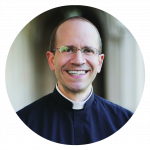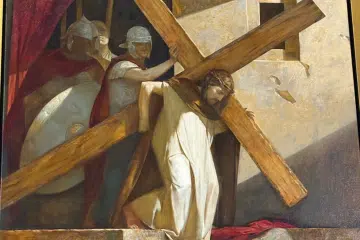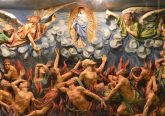Are There Modern Prophets?
The Mass readings frequently draw from the Old Testament prophets. These messengers from God called people to repentance and greater fidelity. Knowing that such a message is needed in every age, we may wonder if prophets existed after the Old Testament. The short answer is: the age of the prophets has concluded, but the Church’s prophetic witness has not come to an end.
Prophecy and Fulfillment
As God prepared the world for His Son’s coming, the prophets had a pivotal role. From the ninth to the fifth century before Christ, prophets like Isaiah, Jeremiah, and Ezekiel taught the people. They offered predictions, guidance, and warnings. They challenged their hearers to turn away from sin. Though often unheeded, they testified to faithfulness to God despite the cost. Many suffered greatly, eliciting outrage from those they challenged.
The prophets’ roles were to form God’s people in the “hope of salvation” and the “expectation of a new and everlasting Covenant” (Catechism of the Catholic Church, 64). In this, they subtly communicated the attributes of the Messiah, helping humanity to recognize Him when He came. The early Christians connected many of the Old Testament prophecies to Jesus. For instance, Isaiah’s words: “The virgin will conceive and give birth to a son, and will call him Emmanuel” (Is 7:14), and “He was pierced for our sins, crushed for our iniquity” (Is 53:5).
Prophetic Age Concluded
As the Letter to the Hebrews begins, “In times past, God spoke in partial and various ways to our ancestors through the prophets; in these last days, he spoke to us through a son” (Heb 1:1-2). With the Incarnation of Christ, the time of prophecy was completed. As St. Augustine explained, “The time for promises was in the time of the prophets, until John the Baptist; from John until the end is the time of fulfillment.”
Jesus is the fullness and culmination of God’s revelation. As the Catechism explains, in Christ, God “has said everything” (Catechism, 65). Jesus and His revelation to the Apostles complete the public revelation of God. The witness and words of the prophets, as in the days of the Old Testament, are not necessary in the same way they once were.
The Holy Spirit’s Role
While there are no prophets after the Old Testament prophets, the Holy Spirit continues to inspire individuals within the Church, allowing them to bear prophetic witness. St. Paul describes prophecy as a gift to the members of the Church (cf. 1 Cor 12:9).
By Baptism, each Christian is incorporated into Christ, including the role of prophet. The prophetic voice of the Church is found wherever Christians can be found. God’s faithful help show forth the presence of Christ in the world as they discern their words and actions amid contemporary challenges and questions.
Witness Remains
Some Christians may receive special communications from God. These private revelations, which can include Marian apparitions among other visions and messages, do not add to or change revelation but provide encouragement and example. The faithful are not required to believe in private revelations, but these revelations can strengthen faith and offer spiritual insights.
Public revelation is complete in Jesus, but the gift of prophecy remains. While there are no longer prophets in the same sense as those of the Old Testament, the Church continues the prophetic mission through the witness of its members through the Holy Spirit’s guidance. The fullness of revelation is found in Jesus Christ, and the Church carries forward that revelation through its teaching and example.
 Father David Endres is professor of Church history and historical theology at Mount Saint Mary’s Seminary and School of Theology.
Father David Endres is professor of Church history and historical theology at Mount Saint Mary’s Seminary and School of Theology.
This article appeared in the August 2025 edition of The Catholic Telegraph Magazine. For your complimentary subscription, click here.













